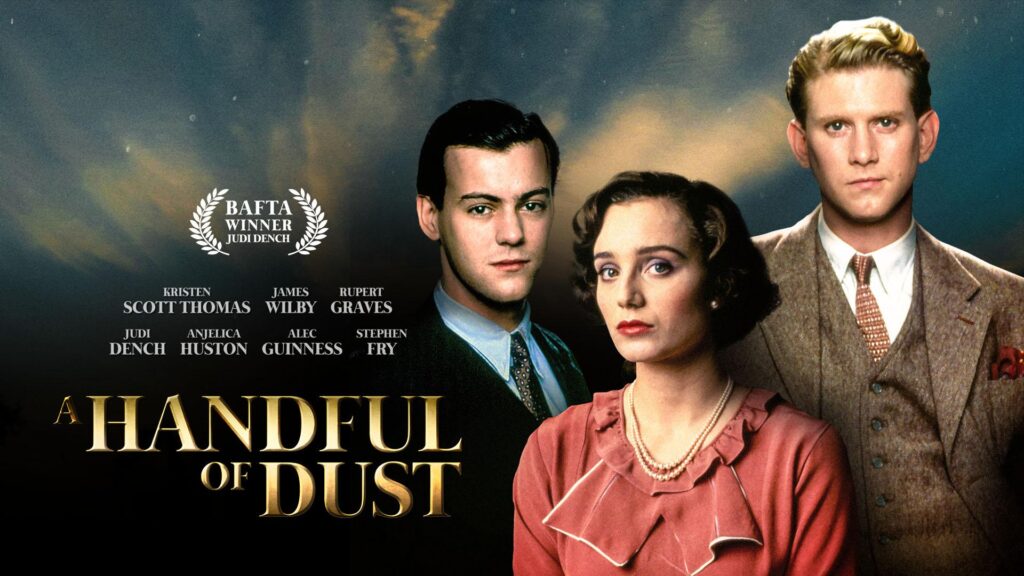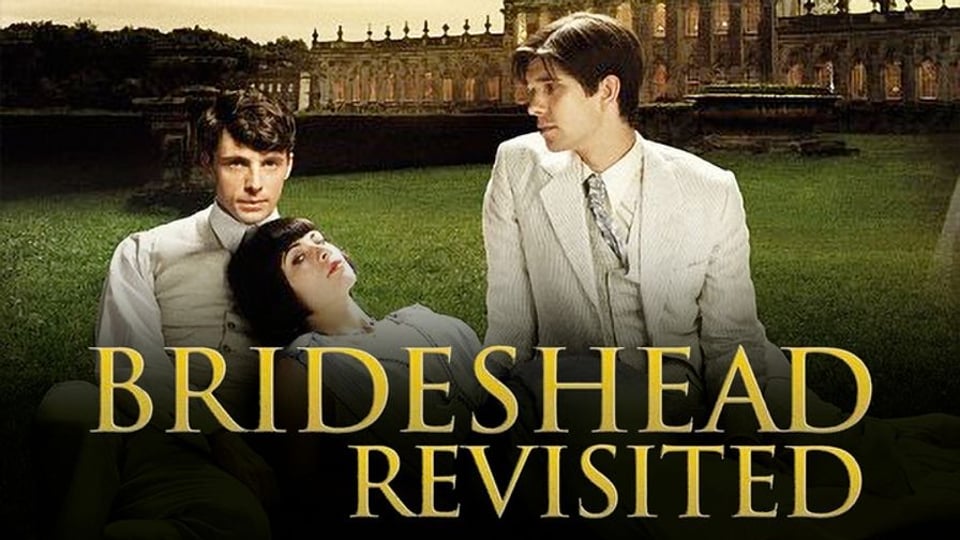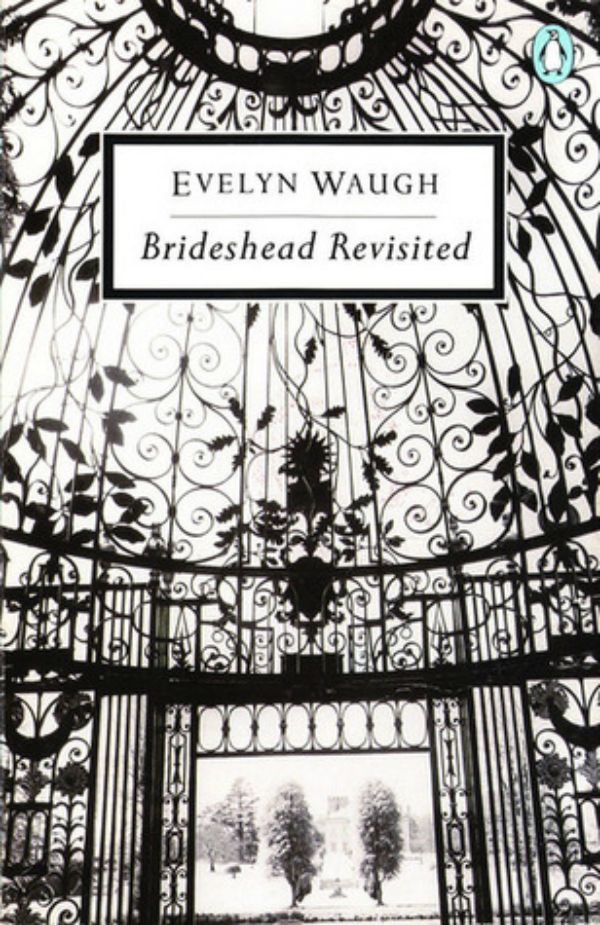A Handful of Dust by Evelyn Waugh
When laid low with Covid, I watched the film – “A Handful of Dust”, with a great cast ~~ Kristen Scott Thomas, Judy Dench, Stephen Fry and Alec Guiness ( just to name a few). I very much enjoyed this sad, and yet, beautiful film. The story lingered on my mind days afterwards.
Later, I remembered I had a copy of book by Evelyn Waugh and pulled it down from my shelves
(People, this is why I have so many books I haven’t read – there it was, just waiting for me – oh what pleasure!)
I started this book version just thinking I would browse through it, but soon found myself equally immersed.
The book opens with this quote:
. . . I will show you something different from either
Your shadow at morning striding behind you
Or your shadow at evening rising to meet you;
I will show you fear in a handful of dust.”
——-The Waste Land, T.S. Eliot
Published in 1934, A Handful of Dust is a satirical novel that offers a social perspective of life among the upper classes in England in the early twentieth century. The socially privileged thrive on club membership, nightly parties, and the latest gossip. They keep up a charade of manners, a seemingly glamorous existence to which the poorer classes aspire.
Brenda and Tony Last have been married for five years, when we meet them. Tony adores his ancestral house, Hetton, his young son, John Andrew and his wife, Brenda. But it soon becomes apparent, the beautiful Brenda is bored to tears.
After a half meant invitation for the weekend, John Beaver appears at the door of Hetton. Beaver is a scrounging young man, who hangs around bars hoping to be brought a drink, has no job and little income, but is a useful ‘spare man,’ ready to drop everything for a free lunch, or dinner party. After the weekend visit, Brenda begins an affair with this dull and idiotic social climber even going so far as to rent out a flat in London, telling Tony that she’s studying economics while she’s carrying on this affair — which everyone in their social circle knows about except her dim-witted husband.
When tragedy strikes – I won’t spoil things by revealing the event and the astonishing reaction to it – Brenda insists on a divorce.
Tony devastated, sets off on an expedition to look for a lost city in Brazil organized by a chap he met and was instantly intrigued. Tony finds himself reading Dickens in the jungle for a truly insane explorer. I can’t tell you any more, but it is harrowing. (I read that Mr. Waugh drew on his own experiences from a trip to Guyana to write this second part of the book.) Even thought I knew what was going to happen from the film, the book’s conclusion was still devastating.
Seldom do I watch a film before I’ve read the book, but in this case I found both equally riveting. The film is well acted and beautifully filmed. It follows the novel fairly closely but it was a sad and desperate story
The book is deeper, with a more satirical (and often funny) critique of the social classes in Britain during that time period. Mr. Waugh seems to both criticize and admire English aristocrats, and he is especially fascinated with their homes and architecture — not to mention the Catholic church. This makes for a seductive combination, which left me feeling I had inhabited the society described.
Where the book fell a little flat, was the characters didn’t come to life as well as in the film. Or, perhaps I just couldn’t help visualizing the actors in the film. The book does do a wonderful job of mixing both the tragedy and comedy. The characters are so hapless and awful but with Mr. Waugh’s brilliant writing and descriptions you can’t stop reading. (It was also interesting to read the alternative ending Waugh wrote.)
As I put the book back on my shelf next to my other Evelyn Waughs’, I noticed my copy of Brideshead Revisited, and realized I had done the same thing with that novel. First I saw the infamous and beautiful film, and was so transformed by it, I had to immediately read the novel.
From the book blurb:
“The most nostalgic and reflective of Evelyn Waugh’s novels, Brideshead Revisited looks back to the golden age before the Second World War. It tells the story of Charles Ryder’s infatuation with the Marchmains and the rapidly-disappearing world of privilege they inhabit. Enchanted first by Sebastian at Oxford, then by his doomed Catholic family, in particular his remote sister, Julia, Charles comes finally to recognize only his spiritual and social distance from them.”
Both novels/films are about human relationships gone awry — sad, desperate, and cynical. And like a train wreck – one can’t stop watching/reading or look away,
Either are a good place to start with Evelyn Waugh.
Pure coincidence, Ann Patchett just recommended the same two novels.
You can view her video HERE









